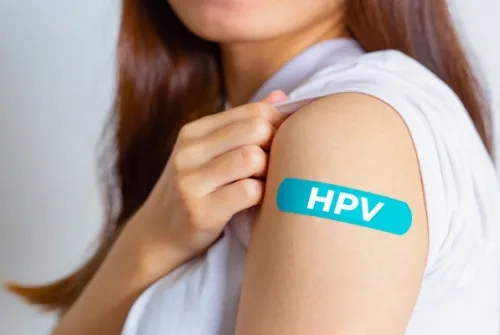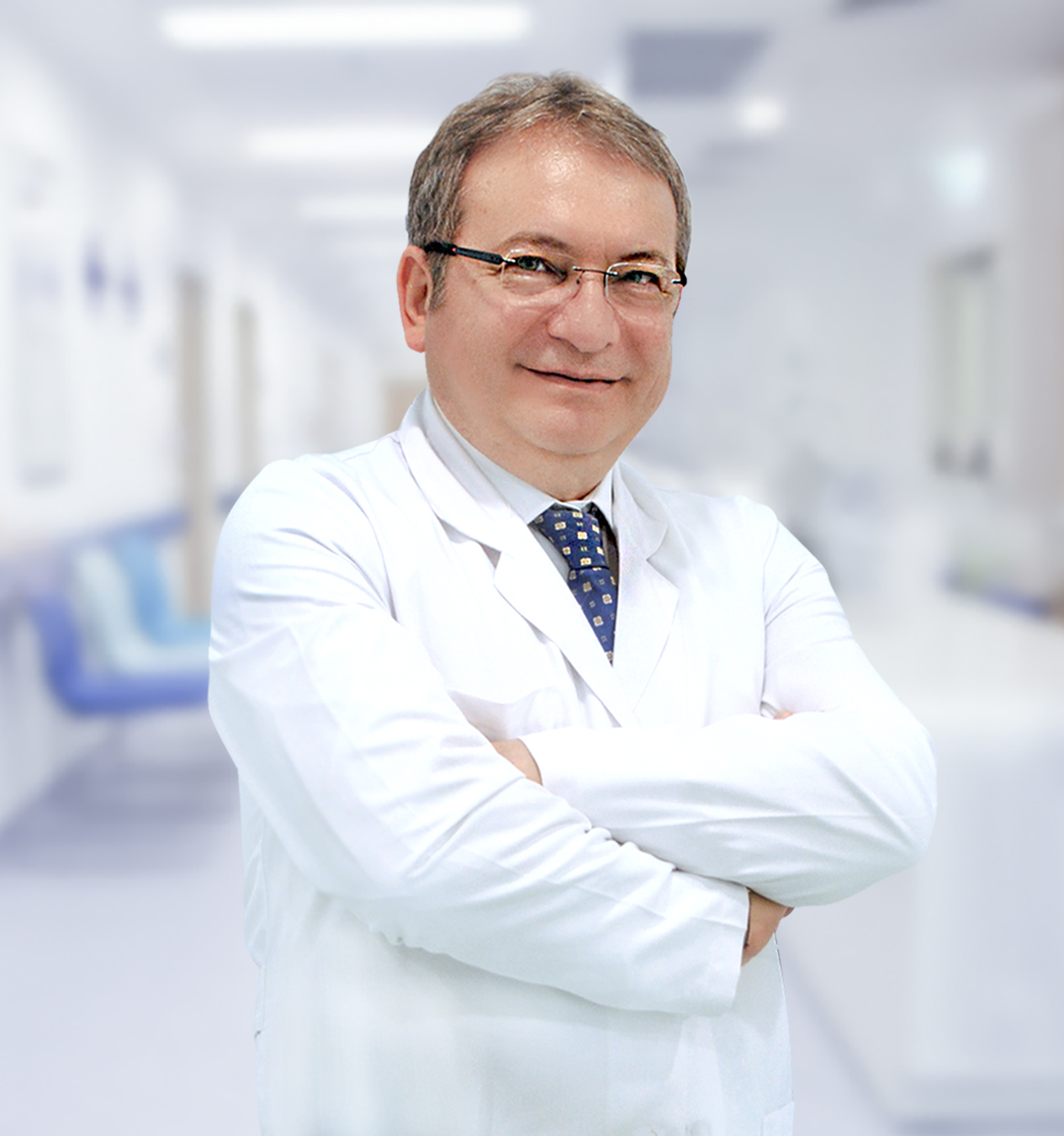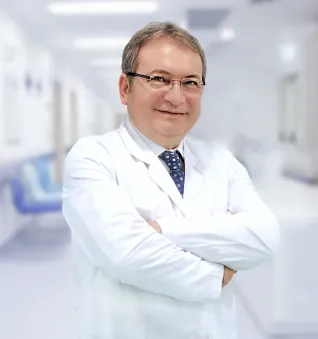Alo Yeditepe
Alo Yeditepe
Frequently Asked Questions About HPV Vaccine
Expert warns during Cervical Cancer Awareness Month: Boys need to be vaccinated
Gynecological Oncology Specialist Prof. Dr. Orhan ÜNAL said that cervical cancer is a preventable disease and HPV vaccine should be made a state policy and included in the vaccination program. Prof. Dr. ÜNAL stated that the HPV vaccine should be given to both boys and girls at an early age. Prof. Dr. Ünal said, “Actually, men need to be vaccinated. Men carry and transmit this virus. "Therefore, it has become necessary to vaccinate boys between the ages of 9 and 15," he said.
Gynecological Oncology Specialist Prof. Dr. ÜNAL made a statement within the scope of Cervical Cancer Awareness Month. Prof. Dr. Orhan ÜNAL said that the rate of encountering the HPV virus in Turkey is approximately 85 percent in women and 91 percent in men. Referring to the importance of raising awareness against HPV and related cancers, our expert explained his views on the subject as follows: “Awareness should be raised by raising awareness. It is necessary to emphasize the importance of vaccination and cervical cancer through public service announcements on television. Anti-vaxxers say the cancer rate is very low and think it is exaggerated.
But as a gynecologist who works on cancer, I say this; When this cancer does not appear in a preventable period and spreads, it follows a very painful path. If cancer spreads to bones and other organs, treatment is not possible. Therefore, it is necessary to create this awareness. Moreover, the issue should not be viewed only as protection against cervical cancer. Head and neck (oro-pharyngeal), ano-genital, female external genital (vulva), vagina and penis cancers are also caused by infection with the HPV virus. So, vaccination or protection from HPV virus is very important as it causes such vital diseases. It is important to educate people and prevent sexuality from being a taboo by informing them. Moreover, even students studying at the university have a lack of knowledge on this subject and try to treat them with warts transmitted by HPV.”
“Vaccination Should Become a Government Policy”
Stating that there is no problem in accessing the HPV vaccine in Turkey, Yeditepe University Koşuyolu Hospital Gynecological Oncology Specialist said: “The vaccine can be provided from pharmacies. In the past, there was a vaccine that we call a double vaccine, which is effective against HPV types 16 and 18, which are the most cancer-causing ones. Afterwards, a combination called quadruple vaccine was used to protect against warts caused by infection with HPV types 6 and 11, which are frequently encountered at early ages. Finally, the 9-valent vaccine, effective against 9 types of HPV, has recently arrived in Turkey and started to be used. For protection, two doses, 6 months apart, are sufficient for children between the ages of 9-15. After reaching the age of 15, 3 doses of vaccine are recommended until the age of 26. "If this vaccination becomes a state policy, as in Australia, England and America, more people will be able to access the vaccine," Dr. ÜNAL said.
“The More Active Your Sexual Life Is, The More The Risk is Increaseing”
Stating that the rate of cervical cancer in Turkey is 4 and a half per hundred thousand, our expert said, “1,500 people die every year in Turkey due to this reason.” There is no big difference between us and developed countries. In this sense, our current position is in a positive place. One of the reasons for this is that sexual life in our country begins at a later age than in America and Europe. "The earlier the sexual intercourse occurs and the greater the number of partners, the higher the risk of contracting HPV." Dr. ÜNAL said.
“Turkey Needs to Be Included in the Vaccination Program”
Our expert added that the most important cause of cervical cancer is the HPV factor, called 'human papilloma' virus, and continued as follows:
“While the rate of encountering the HPV virus in Turkey is approximately 85 percent for women, this rate rises to 91 percent for men. When we look at the average, there is an 85 percent probability of encountering HPV infection in Turkey. Therefore, since there is such a high rate, we need to take precautions in this regard. The more active your sexual life, the more this possibility increases. Therefore, as a precaution, Turkey needs to be included in the vaccination program.”
“Stories that the vaccine causes paralysis will cause people to give up on vaccination, and we should not act with assumptions.”
Responding to the claims that the HPV vaccine 'causes paralysis', our expert stated that public health should not be tampered with based on some assumptions and said:
“As with every vaccine, the HPV protection vaccine may have some side effects. Local pain and redness may occur. Low blood pressure may occur. It is claimed that there is a disease called Guillain-Barre, which is an autoimmune disease related to the nervous system, but research on this subject has not fully confirmed this. There is an organization where the side effects of the vaccine are reported, collected and examined. As a result of these investigations, the World Health Organization and vaccine safety organizations did not produce any data that could say 'the vaccine has this side effect'. We cannot talk about such a side effect of a 20-year-old vaccine right now, it is necessary to see and evaluate the data of more cases in the future. We see that there is no paralysis or any serious complications. Millions of people in America, England and Australia have received the HPV vaccine. Do these people never report their stroke? In such a case, notifications should have come out from here.”
WHO Recognizes the Need for Vaccination
“For each vaccine, there may be side effects, whether mild or serious, that are circulating in the media. "However, for the HPV vaccine, the World Health Organization has accepted that people should be vaccinated by investigating the benefit-harm effect," said our expert, and continued: "If millions of people are saved from the lethal effect of cancer by vaccination or if precautions can be taken, the possibility of serious side effects of a minor extent is acceptable." This has been applied with approval due to its high protection, although many side effects have been reported for each vaccine, such as polio, measles, and recently administered Covid vaccines. We may be talking about another situation in the future. However, with today's information, if this is the scientific remedy and if it has been passed through more than one scientific phase studies and has been deemed appropriate as protection and has been approved, it seems that there is no choice but to accept that rejecting it may harm more human lives.
Human health is very important. The health of a society should not be tampered with by making certain assumptions and citing bad events as examples. Of course, there may be those who disagree, if they have cases to report in this direction, let them present them and let's discuss it. Vaccination is a very important issue for human health. Therefore, one should not act with certain assumptions. There are so many bad things that happen to women when they encounter this cancer; While all this is happening, people who have not experienced this event say 'this is so dangerous, it causes paralysis like this', this will make people doubt and cause them to give up getting vaccinated. Therefore, I believe that they should be careful with their speech and give up statements that will cause conflict in people.”
“HPV Vaccine Has Lifelong Protection”
Our expert stated that the risk of HPV transmission from common use areas such as pools, toilets and baths is quite low and said, “The risk of transmission from these areas is less than 0.1 percent. In other words, there is almost no infection from these places, it is almost non-existent. It is transmitted sexually at a rate of 99 percent. Since the HPV virus requires a temperature of 37 degrees, we can say that sexual contact is the only way of transmission. The condom's virus protection rate is 60 percent. Therefore, the most effective way of protection is vaccination. At this point, the World Health Organization has determined that vaccination is extremely effective and recommends it. The HPV vaccine has lifelong protection, even if the antibody level decreases over the years (in 10-15 years). Since the protective memory is activated in individuals exposed to HPV after vaccination, the amount of antibodies increases again and protection is provided. "There is no possibility of recurrence," he said.
“Boys Should Also Be Vaccinated”
Gynecological Oncology Specialist Prof. Dr. Orhan ÜNAL, who also gave information about the reasons why the HPV vaccine is recommended at early ages, said: “Because we get a higher antibody response at the ages of 9-11. Since sexual life does not start at this age, the antibody level is stronger. But of course, we say that vaccination can be done until the age of 45. This does not increase the level of antibodies as much as vaccination at an early age. Therefore, we recommend that both boys and girls be vaccinated at an early age. Essentially, men need to be vaccinated. Men carry and transmit this virus. Therefore, vaccination of boys between the ages of 9 and 15 is essential. We always look at the incident as cervical cancer. In fact, head and neck cancers and anal cancers are caused by HPV. Therefore, we recommend that boys be vaccinated,” he said.
3 Ways to Protect: Vaccination, Pap Smear Test and Awareness
Stating that HPV infection should be looked at from multiple perspectives, Yeditepe University Hospitals Gynecological Oncology Specialist said that young people do not have enough information on this subject and continued as follows:
“This situation is not just about cancer. Some genital discharges, infections, and many other sexually transmitted diseases also need to be treated. These diseases act as co-factors and cause the emergence and spread of cervical cancer. Since smoking directly affects the immune system, it causes HPV infection to lead to cancer. 90 percent of HPV types, which have more than a hundred types, do not cause cancer, but there are around 30 medium and high types that cause cancer, and not all of them carry high risk. Moreover, even if they are the high-risk type, they cause cancer over the years, so they can be prevented with early diagnosis. In other words, precancerous lesions can be prevented by early diagnosis with vaginal smear screening. With early treatment; By simply scraping the cervix, pregnancy can be achieved and women can continue their lives. First protection; "vaccination, the second protection is follow-up with smear test, and the third is raising awareness by raising public awareness."
“Vaccination Does Not End Everything…Screening Should Continue After Vaccination”
Stating that early diagnosis and regular screening save lives, our expert gave the following information on the subject: “In order for a woman to have cancer, she must have never been to a gynecologist in her life. Because the HPV virus does not cause cancer immediately after it is acquired. It can be a 5-year, 10-year or even 20-year process. This may vary depending on the immune system. Therefore, going to a specialist even once and having a pap smear test is important for early diagnosis. The World Health Organization recommends having a smear test every three years from the age of 21 to 30. We start getting HPV tested after the age of 30. After this age, both smear and HPV are checked, and if there is no high-risk situation, the time interval increases to once every 5 years. By the age of 30, the virus can be cleared by 90 percent. Getting the HPV vaccine does not mean that this infection will not occur again. Because there are more than 100 types. We have vaccines against the 9 types that most cause cancer. Therefore, vaccinating does not mean ending everything. Screening should continue after vaccination. “We do this screening until the age of 65.”
About
Faculty and Year of Graduation:
İstanbul University Cerrahpaşa Medical Faculty, 1979
”
See Also
- Contraceptive Methods: Birth Control and Effective Protection Options
- What is Vaginal Infection? What are the Symptoms?
- What is HPV? What are the Symptoms of HPV? How is it Transmitted?
- Can Women With Gynecological Cancer Have Children?
- Can Cervical Cancer in Women Be Prevented?
- All You Need to Know About Cervical Cancer
- Be Careful When Consuming Sage During Pregnancy
- HPV Infection Also Affects Men, Not Just Women
- Do Ovarian Cysts Prevent Childbearing?
- No Obstacle to Having Screening Tests in Gynecological Cancers
- Men Should Also Be Vaccinated Against Cervical Cancer
- Urinary Incontinence Causes Depression in Women
- Endometrial Cancer
- Ovarian Cancer
- External Genital Area (Vulva) Cancer
- Can Cervical Cancer Be Prevented in Women?
- Pregnancy Helps Reduce the Risk of Uterine Cancer
Alo Yeditepe





